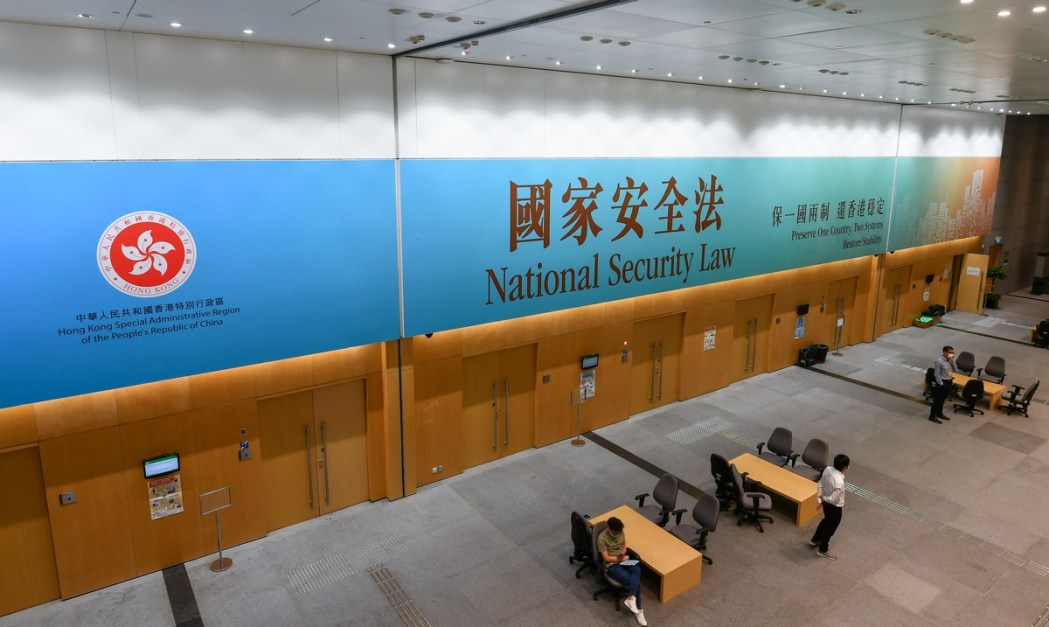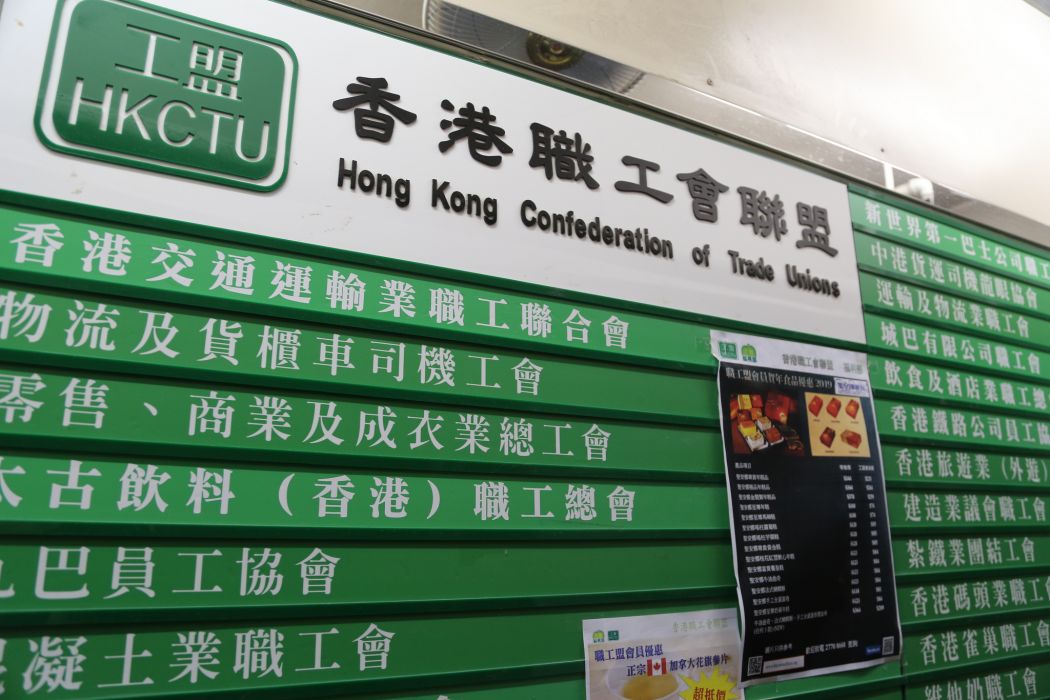Hong Kong’s Security Bureau has repeated warnings that groups will remain liable for any criminal offences even if they disband, after members of a major trade union coalition voted to shut down – the latest of numerous pro-democracy groups to fold.
The Hong Kong Confederation of Trade Unions announced its formal decision during a special general meeting on Sunday evening, citing the current political climate. Chairperson Joe Wong said it would follow proper disbandment procedures over the next two months.

The coalition’s leaders said they hoped workers would still be able to regroup and fight for a democratic Hong Kong.
“[W]here there is oppression, there will be resistance… this is a time that will test our resilience and wisdom, without the banner of the HKCTU, I believe members who are here today will still support each other,” Wong said.
“Our hope is that Hong Kong workers can again band together and fight for a democratic society… We believe that, as long as there are people, our story can continue to be written,” vice-chair Leo Tang said.
The group met the press with a banner that read: “Whatever happens, we will still be together.”

Tang added that, although the confederation will disband, individual member unions have decided to keep operating for as long as possible.
The HKCTU in late September announced plans to disband, citing threats to members’ personal safety. It came after attacks from Chinese-backed media and rumours that it would become the next target of a national security probe.
The coalition, founded 31 years ago, until recently represented over 145,000 workers from 93 separate trade groups covering a broad spectrum – including aviation, construction, catering, retail and social welfare.
‘Remain criminally liable’
In response to the group’s announcement, the Security Bureau reiterated warnings that groups would not evade liability for any criminal offences through disbanding.
“[A]n organisation and its members shall remain criminally liable for the offences they have committed, notwithstanding its disbandment or the resignation of its members,” a statement said on Sunday evening.

“The Police will continue to spare no efforts in pursuing the legal liabilities of any organisation and person suspected of violating the Hong Kong National Security Law… or other laws of Hong Kong.”
The bureau also vowed to continue investigating local groups for any instances of foreign funding, a potential offence under the security law.
“We will conduct thorough investigations in respect of those local organisations which have received donations from foreign political organisations, and will request them to provide information or will take other measures as required,” it said.
“Colluding with foreign forces” is criminalised by the national security law, which critics have decried as vaguely-worded and draconian.

The confederation is one in a series of decades-old civil society groups which have disbanded in recent months following increasing national security probes.
The city’s largest teachers’ union and the front which organised mass pro-democracy demonstrations separately disbanded in August. Both had cited an inability to see a way forward in the political climate.
Key pro-democracy group the Hong Kong Alliance in Support of Patriotic Democratic Movements of China also voted to disband last month, after its leadership was arrested and charged under the security law and all its assets were frozen. It had for some three decades organised the Tiananmen Massacre vigils in Victoria Park.
Critics have decried what they see as the systematic dismantling of Hong Kong’s civil society, something the city’s leader Carrie Lam has denied.
Support HKFP | Policies & Ethics | Error/typo? | Contact Us | Newsletter | Transparency & Annual Report | Apps
Help safeguard press freedom & keep HKFP free for all readers by supporting our team
























